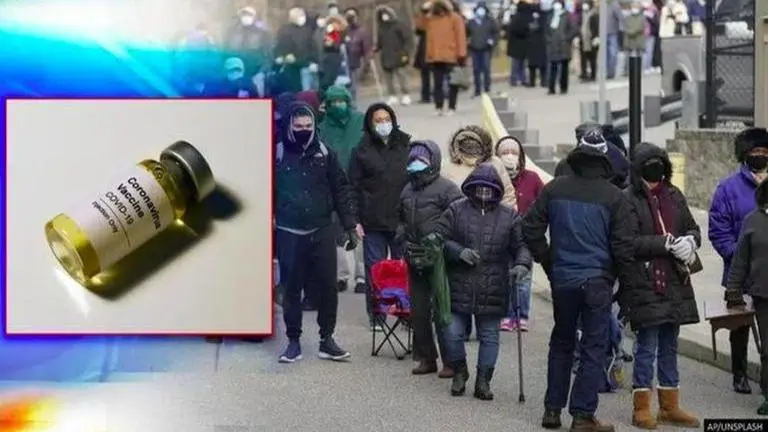Updated 26 February 2021 at 19:34 IST
Four in five Oxford COVID-19 vaccines delivered to EU are unused, says report
EU member states appeared to be less interested’ in Pfizer and Moderna and lived under the perception that Oxford AstraZeneca COVID-19 vaccines were inferior.
- World News
- 3 min read

At least four out of five Oxford/AstraZeneca vaccine doses delivered to the EU have remained unused, a Guardian investigation revealed. It further added, that the German chancellor Angela Merkel accepted the liability issues and vaccine acknowledgment problems. Meanwhile, the German state press cited the confidential European Commission documents, saying that the EU member states appeared to be 'less interested’ in BioNTech-Pfizer and Moderna, and lived under the perception that the AstraZeneca/University of Oxford vaccines were far more ‘inferior’ than the other two jabs.
EU’s vaccination has also been slow-paced, and the bloc was hit with supply shortages that sent the EU Commission in ‘panic’ mode, thereby relying on other strategies for containment of surge in COVID-19 infections.
Munich's Süddeutsche Zeitung newspaper, German public broadcasters NDR and WDR reported that only a few states across the EU were now relying on the messenger RNA vaccines and there were comparatively lesser state buyers. Several EU states were against the messenger RNA vaccines due to difficulty in maintenance of its storage temperature during the shipment.
EU members, furthermore, have grown very ‘skeptical’ of mRNA usage in immunization of the larger population against the SARS-CoV-2 virus. This comes despite the World Health Organization (WHO) announcement that the AstraZeneca COVID-19 vaccine was safe and effective for people over the age of 65, and for settings where variants have spread.
Advertisement
“Even if there is a reduction in the possibility of these vaccines having a full impact in [their] protection capacity, there is no reason not to use the AstraZeneca vaccine to reduce the level of severe disease in a country’s population,” chairman of the WHO’s Strategic Advisory Group of Experts on Immunization (SAGE), Alejandro Cravioto said in a live-streamed address.
Advertisement
EU AstraZeneca involved in endless rows
Despite WHO’s confirmation, the EU and AstraZeneca have been involved in a row about ‘glitches’ in jabs’ constrained production, the accusation of EU against AstraZeneca that shipment has been ‘unfairly’ prioritized between EU and the UK amid a critical shortage last month, and over the efficacy of the vaccine among EU countries’ elderly high-risk population. Many EU nations, including Germany, Austria, France, and Italy restricted the use of the AstraZeneca vaccine among the elderly population, imposing limitations on anyone above the age of 55 as countries overhauled their vaccination plan.
French health officials in a statement alleged that there was “still not enough data” to rely on the efficacy of the AstraZeneca vaccines. Meanwhile, the European Affairs Minister Clément Beaune told French radio that the EU would be taking “a lot of risks” in its vaccination campaign. Health authorities across Sweden and Poland made similar announcements, restricting vaccine use Amon vulnerable older groups.
Belgium’s health minister, meanwhile, told state press that the country will administer AstraZeneca only to people below the age of 55 over looming safety issues. Meanwhile, in a televised interview with the German broadcasters, chancellor Merkel hailed Russia’s Sputnik V vaccine, saying that the European countries were allowed to use from several jab options. "Every vaccine is welcome in the European Union", Merkel was quoted saying by British media outlets.
Published By : Zaini Majeed
Published On: 26 February 2021 at 19:34 IST
